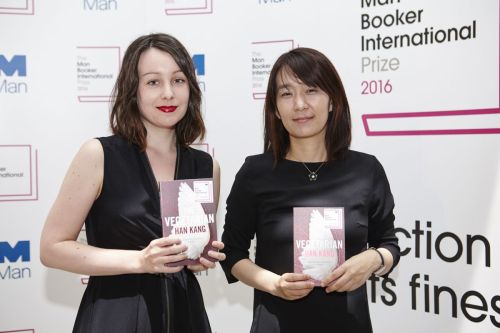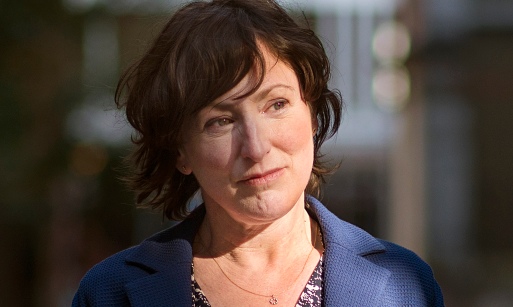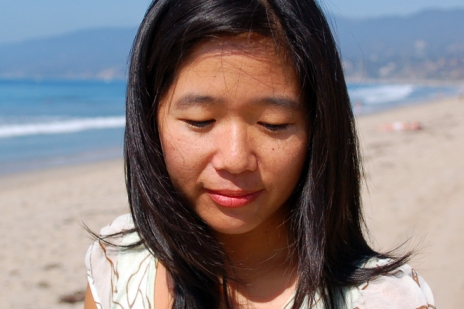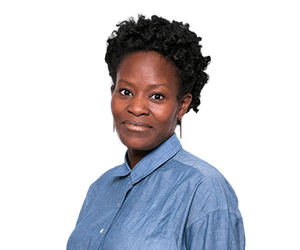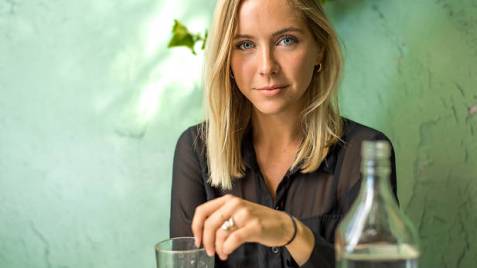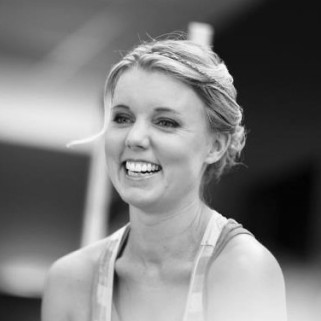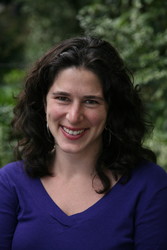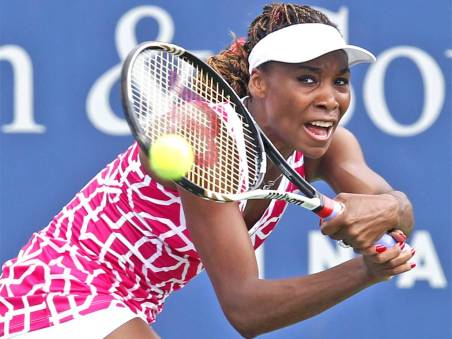Hello! It’s been a while. I wasn’t planning on posting here ever again really, and, no doubt, some of you have forgotten you ever subscribed to this blog, so this will be a surprise. A pleasant one I hope, but if not there should be an unsubscribe button around here somewhere.

So what’s going on and why am I here? The short answer is that I read Evie Wyld’s The Bass Rock over the Easter weekend and want somewhere to shout about how brilliant it is. The longer answer involves an existential crisis prompted by the UK lockdown. If you’ve met me in real life, you’ll know that I can talk for England. Being locked down on my own means that, other than creating a rota of my long-suffering friends and forcing them to talk to me on a daily basis, I’ve mostly got no one to babble on to other than myself and I’ve had enough of the monologue in my own brain. Consider it a treat that I’m foisting it upon you instead; it has lots of thoughts about books and politics and misogyny.
One of the reasons I stopped reviewing books here was because I was no longer enjoying it. I never wanted reviewing to be a chore and when you’ve fallen out of love with it, it shows in your writing. I want to create something different instead. The basic plan is a diary with thoughts around some of the books I’ve been reading, along with links to other things – essays, stories, poems. Apparently, I think I’m Alan Bennett (well, we are both from Yorkshire) or Deborah Levy (I wish), whose Lockdown Diary is one of the best things to come out of the pandemic so far.
My reading habits have changed this year; at the start of 2020, I set myself a challenge to read 100 books from my own shelves (about 70% of my total reading in a good year). The reasons behind this were that I was becoming increasingly frustrated by the number of unread books on my shelves, some of which have been sitting there for 20+ years, and I thought I’d limited my own reading through running this blog. The feeling that I should review everything I read and that I should stay up to date with new releases was a box of my own making. I hit 50 books/50% of my target on Maundy Thursday. This was unexpected. I’d assumed that come October, I’d be creating piles of novellas round my flat and powering through them. What I’m expecting to post here in future then is a mix of old and new.
 When I make it to 50, I give myself a break and an opportunity to read the books that have recently been or are soon going to be published by writers I love. Evie Wyld’s previous novel, All the Birds, Singing, is one of my favourite books, so I’m both keen to read The Bass Rock and a little trepidatious. By the start of the second chapter I know I’m going to love it. Vivianne, one of three female protagonists, answers the door to a delivery guy in the middle of the day in her dressing gown. Her waste bin and recycling are overflowing. She’s 40. I don’t need protagonists to be relatable but it’s unusual to read about a character who’s over 35, lives alone, is neither a complete mess nor super competent. I like her. I feel seen. Vivianne lives in London but, throughout the novel, travels back and forth to North Berwick to sort out the personal items in her grandmother’s house, which is up for sale following her grandmother’s death.
When I make it to 50, I give myself a break and an opportunity to read the books that have recently been or are soon going to be published by writers I love. Evie Wyld’s previous novel, All the Birds, Singing, is one of my favourite books, so I’m both keen to read The Bass Rock and a little trepidatious. By the start of the second chapter I know I’m going to love it. Vivianne, one of three female protagonists, answers the door to a delivery guy in the middle of the day in her dressing gown. Her waste bin and recycling are overflowing. She’s 40. I don’t need protagonists to be relatable but it’s unusual to read about a character who’s over 35, lives alone, is neither a complete mess nor super competent. I like her. I feel seen. Vivianne lives in London but, throughout the novel, travels back and forth to North Berwick to sort out the personal items in her grandmother’s house, which is up for sale following her grandmother’s death.
The second protagonist is Ruth, recently married to Peter who has two boys from his first marriage. It’s post-World War II and Ruth’s negotiating how to be a wife to a man she doesn’t know very well, in a place far from her London roots, while also attempting to be a mum to two boys whose mother has died. The third woman is Sarah. It’s the 1700s and she’s on the run, having been accused of witchcraft. She’s sheltered by a family whose son narrates the story. All three women are linked by their proximity to Bass Rock, an island off the coastline, but also by the violence – physical and psychological – that is inflicted upon them by men. Wyld draws the links between these women through the structure of the chapters which move from Vivienne to Ruth to Sarah to Ruth and back to Vivienne. She also provides echoes between the years, both through actions and incidents that reoccur and through items passed between the generations.
Wyld’s purpose is to bear witness to the incidents of violence against women that have taken place for centuries. She makes this clear through the character of Maggie, a woman Vivienne meets in a supermarket in the opening chapter. It’s late at night and Maggie warns Vivienne there is a man creeping around by her car. They meet again in a later chapter where we discover that Maggie is homeless, considers herself a witch and sometimes undertakes sex work. Vivienne is wary of Maggie and, initially, so am I, until I realise that Wyld’s making me consider how we think about women who warn us about the behaviour of men. Of course they’re wild and weird and unpredictable, according to patriarchal societal conventions. Maggie’s the friend who, when you’re dismissing male behaviour that’s made you feel uncomfortable, reminds you yes, all men.
It’s an image that Maggie conjures that stays with me after I finish reading the book. She asks:
What if all the women that have been killed by men through history were visible to us, all at once? If we could see them lying there. What if you could project a hologram of the bodies in the places they were killed? […] We’re just breezing in and out of the death zone. Wading through the dead.
I think about all the places I’ve lived and wonder whether there’s a dead woman in each one. I think about the route I take from my flat into Sheffield city centre and wonder how many dead women lie along it. It’s been days and I’m still haunted by it.
 Irina, the protagonist of Eliza Clark’s debut Boy Parts has a response to male violence. She photographs men through the lens of the female gaze, creating portraits of them as sexual objects which she sells via her website and to a private collector known as B. Initially, Irina appears in control. She’s confident and brash, with a fuck you attitude to life. It soon becomes apparent though that she’s an Ottessa Moshfegh character in a Bret Easton Ellis novel, albeit set in Newcastle, and therefore not entirely reliable or stable. She torments her friends and the men she photographs, but the cracks are there and, as the story descends into violence, it’s Irina that is tortured. I love an unlikeable female protagonist and Irina’s a delicious one; you wouldn’t want to be friends with her irl but she’s fun to spend time with from the safe distance of the page.
Irina, the protagonist of Eliza Clark’s debut Boy Parts has a response to male violence. She photographs men through the lens of the female gaze, creating portraits of them as sexual objects which she sells via her website and to a private collector known as B. Initially, Irina appears in control. She’s confident and brash, with a fuck you attitude to life. It soon becomes apparent though that she’s an Ottessa Moshfegh character in a Bret Easton Ellis novel, albeit set in Newcastle, and therefore not entirely reliable or stable. She torments her friends and the men she photographs, but the cracks are there and, as the story descends into violence, it’s Irina that is tortured. I love an unlikeable female protagonist and Irina’s a delicious one; you wouldn’t want to be friends with her irl but she’s fun to spend time with from the safe distance of the page.
Talking of safe distances…when the lockdown begins in the UK, I find the only genres I can concentrate on are crime and historical fiction. The latter of which I would usually tell you is one of my least favourite genres (along with men’s fiction, obviously), but there’s something comforting about escaping into a past where things have already happened and the outcomes are certain. It’s perfect timing then for me to read Maggie O’Farrell’s latest novel Hamnet, named for Shakespeare’s son who died when he was 11 and was possibly the inspiration for the play Hamlet, the two names being interchangeable. It’s Agnes (better known as Anne) Hathaway who takes centre stage here though. I take great delight in noticing that William Shakespeare is never referred to by name but as the tutor or the father or her husband, in the same way that women are often reduced to being someone’s wife or mother.
 The first two thirds of the novel move between Judith, Hamnet’s twin, falling ill and Agnes and Will’s courtship and marriage. Agnes is viewed with suspicion by a town who don’t understand her ways. She keeps a kestrel, makes herbal remedies, and can read someone’s soul and future by touching the spot between their thumb and first finger. Shakespeare’s enchanted by her; in him, she encounters a boundless soul she can’t fathom. O’Farrell’s always been skilled at handling different timelines, but here her movement across time and perspective is fluid and flawless. It reminds me of Deborah Levy’s comments about how we don’t experience time chronologically and O’Farrell shows this specifically through Agnes’ ability, mirroring it for the reader as we move between the stages of her life.
The first two thirds of the novel move between Judith, Hamnet’s twin, falling ill and Agnes and Will’s courtship and marriage. Agnes is viewed with suspicion by a town who don’t understand her ways. She keeps a kestrel, makes herbal remedies, and can read someone’s soul and future by touching the spot between their thumb and first finger. Shakespeare’s enchanted by her; in him, she encounters a boundless soul she can’t fathom. O’Farrell’s always been skilled at handling different timelines, but here her movement across time and perspective is fluid and flawless. It reminds me of Deborah Levy’s comments about how we don’t experience time chronologically and O’Farrell shows this specifically through Agnes’ ability, mirroring it for the reader as we move between the stages of her life.
Around the mid-point of the book, O’Farrell includes a chapter showing how the bubonic plague might have reached Stratford-upon-Avon and Judith Shakespeare by way of a cabin boy who encounters a monkey in Alexandria and then goes on to collect some glass beads from Murano, which are eventually delivered to the Shakespeare’s next-door-neighbour. At this point, I realise I had no idea how Hamnet died and my comfort read has been invaded by thoughts of passengers on cruise ships and airplanes and ideas about contact tracing and testing. Too late by now though as I’m well invested in the world O’Farrell has created.
The final 100 pages are a single chapter that runs from the death of Hamnet to the staging of the play named for him. It’s a superb study of grief and the different ways in which we deal with it. When I finish the final pages, it’s difficult to believe that I’m not standing in The Globe after the audience has mostly emptied out.
O’Farrell has long been pigeonholed as a writer of ‘women’s fiction’ (oh how I hate that term) and largely ignored by the big prizes. Hamnet is longlisted for The Women’s Prize for Fiction and I sincerely hope it makes an appearance on the Booker Prize list too. It is O’Farrell’s masterpiece.
Between the novels, I’m reading lots of short things. While I’ve had too much time to think, I’ve realised that all my favourite writing is political. By which I mean overtly political. (In one sense, all writing by women is political by nature of its existence.) It’s why I love Sinéad Gleeson’s story ‘The Lexicon of Babies’, an allegorical tale of motherhood and society, and Salena Godden’s poem ‘I saw Goody Procter jogging without a face mask‘ which combines The Crucible and people’s policing of each other under social distancing. The final lines, which highlight the hypocrisy of racists and the Tories as they clap and cheer for health care professionals they’ve undervalued and underfunded for years, are pointed and pertinent.
When the news that we were going into lockdown broke, I was a third of the way into Cash Carraway’s memoir Skint Estate. I finished it as schools closed and the majority of the population shifted to working from home or not working because their jobs had suddenly disappeared.
 Carraway writes about trying to secure housing for herself and her daughter, showing how difficult it is even when she manages to save enough for a deposit and several month’s rent. Her income is unstable, whether she’s making it through sex work or writing; landlords don’t want to take tenants whose income is supplemented by universal credit, and Carraway has no guarantor. If she applies for council housing, she knows she will be moved out of London, away from any support networks she has, and indeed, towards the end of the book, she is. Carraway’s book becomes a channel for my anger during a time when there’s a sense it should go unspoken. I walk around my flat saying universal basic income to myself like they’re the words of a lullaby.
Carraway writes about trying to secure housing for herself and her daughter, showing how difficult it is even when she manages to save enough for a deposit and several month’s rent. Her income is unstable, whether she’s making it through sex work or writing; landlords don’t want to take tenants whose income is supplemented by universal credit, and Carraway has no guarantor. If she applies for council housing, she knows she will be moved out of London, away from any support networks she has, and indeed, towards the end of the book, she is. Carraway’s book becomes a channel for my anger during a time when there’s a sense it should go unspoken. I walk around my flat saying universal basic income to myself like they’re the words of a lullaby.
One morning earlier this week, I wonder how Ali Smith is doing and whether she’s rewriting sections of Summer, the final volume of her seasons quartet. I check the publication date and find it’s been pushed back a month to August. This might be because many books are being delayed at the moment, but I hope it’s because she has something to say about the UK government’s reaction to coronavirus. There’s no one whose views I want to hear more right now than Ali Smith’s.
[Review copy of The Bass Rock provided by Vintage; review copy of Boy Parts provided by Influx Books; review copy of Hamnet provided by Tinder Press; Skint Estate bought and paid for by me.]

















